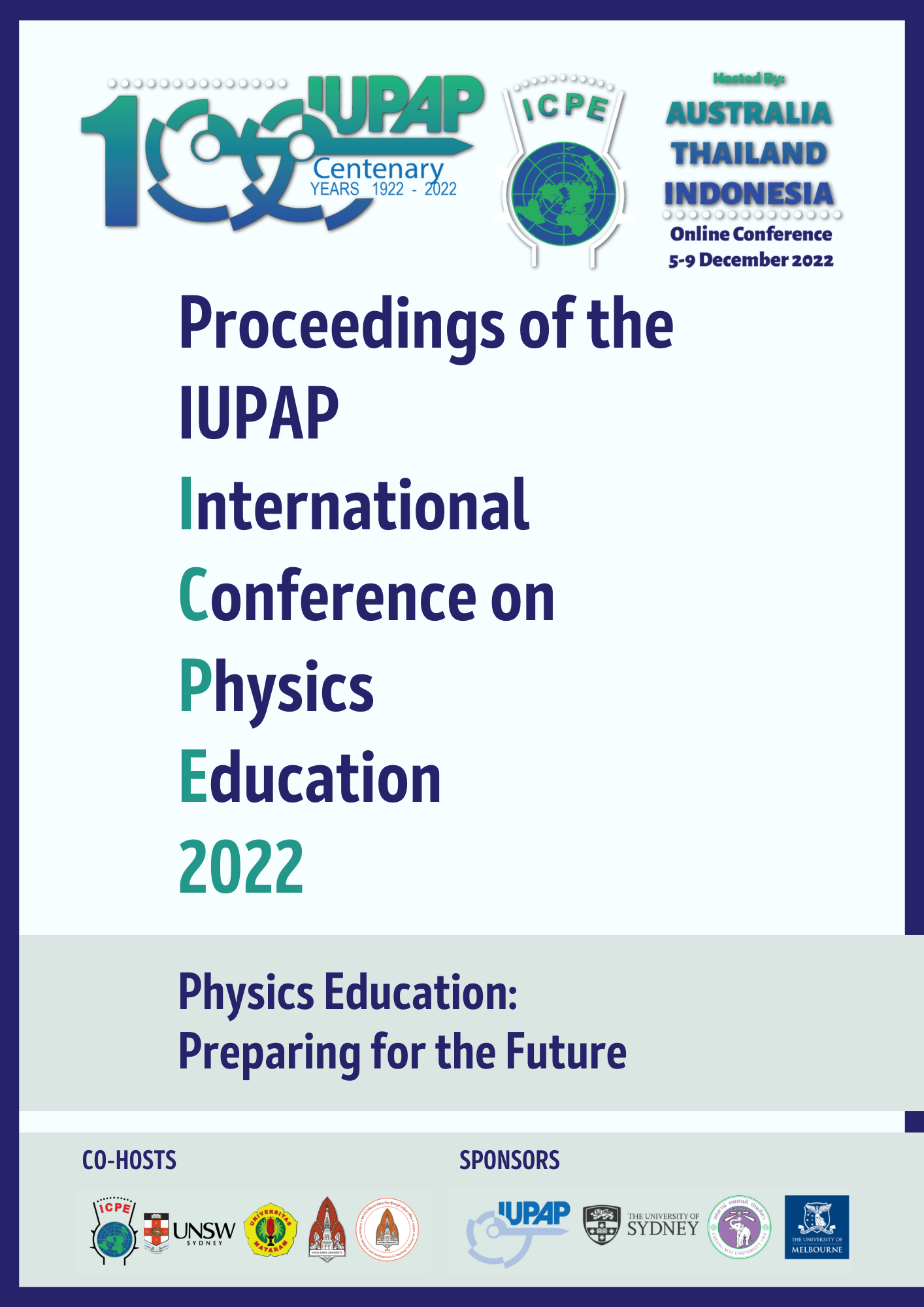Helping students generate physics inquiry problems
Abstract
Physicists’ research usually begins when there are imperfections in previous experiments or theories, when new theories, data, materials, and experimental techniques are invented or developed, or when they discover conflicts between theories and experiments or within theories. However, these situations do not apply for school students, who need different conditions to generate their own physics inquiry problems (PIPs). This is despite the fact that students themselves perceive that generating good PIPs is the most difficult part of physics inquiry activities. Some students are often observed trying to discover inquiry problems that are improperly informed, or simply don’t make sense. In this workshop, therefore, we will introduce specific strategies that can help students generate IPSs at the student’s level of knowledge and inquiry experience.
Intended Audience: Secondary-school Educators
Downloads
Published
Issue
Section
License
Authors who publish with the Proceedings of the International Conference on Physics Education 2022 agree to the following terms:
a) Authors retain copyright and grant the journal right of first publication with the work simultaneously licensed under a Creative Commons Attribution License (https://creativecommons.org/licenses/by/4.0/) that allows others to share the work with an acknowledgement of the work's authorship and initial publication in this journal.
b) Authors are able to enter into separate, additional contractual arrangements for the non-exclusive distribution of the journal's published version of the work (e.g., post it to an institutional repository or publish it in a book), with an acknowledgement of its initial publication in this journal.
c) Authors are permitted and encouraged to post their work online (e.g., in institutional repositories or on their website) prior to and during the submission process, as it can lead to productive exchanges, as well as earlier and greater citation of published work (See The Effect of Open Access - http://opcit.eprints.org/oacitation-biblio.html).
Privacy Statement The names and email addresses entered in the Proceedings of the International Conference on Physics Education 2022 site will be used exclusively for the stated purposes of this journal and will not be made available for any other purpose or to any other party.
